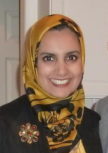
Ramadan in the Time of Corona: An Opportunity to Heal the Healer
By: Saba Maroof, M.D.
“We find ourselves in the unique situation of experiencing the same uncertainty and fear as our patients.”
It has been quite a month. A month since a microscopic force turned our worlds upside down. Thanks to Zoom meetups, memes, and attempting to homeschool four kids, I am relatively stable emotionally. But there are moments the emotions start to overflow and I get overwhelmed with anxious thoughts or become overcome with grief. I know I’m not the only one. Besides being mental health professionals, we have other roles too, as parents, children, in-laws, siblings and friends. And with these various roles come a plethora of responsibilities. Sometimes it feels like we have to hold it together to keep everyone else from falling apart. And so, I wanted to check in with YOU, my fellow healers — when was the last time someone asked, “how are you doing today?”
Our lives have seen a dramatic shift practically overnight. Everything is on pause. We find ourselves in the unique situation of experiencing the same uncertainty and fear as our patients. And yet, as providers, our aim is to heal at all times. As mental health professionals, we are expected to comfort. We must continue to be pillars of support for our patients, spouses and loved ones, even if we feel ourselves crumbling. As we teach our clients, patients, and communities the importance of self-care, are we caring for ourselves? How do we counsel, support, comfort, and heal as we face this collective grief and anxiety?
“I wiped away the tears, took a few minutes to regroup and put my feelings aside so I could be ready to help another.”
During this first month of the coronavirus, I sometimes felt like I was inquiring about and supporting everyone else’s mental health but my own. As a Child, Adolescent and Adult Psychiatrist, my day is spent exploring others’ feelings, emotions and responses and holding space for them. We spend time talking about what they’re doing to keep their spirits up, how they’re feeling, and how they’re getting along with everyone in the house. Many people are dealing with isolation, uncertainty, anxiety, worsening depression, and their usual forms of coping may not be accessible. In the first few weeks of the pandemic, I scrambled to switch to tele-health from a corner of my room. Somehow, the empty aisles in the grocery store translated to a feeling of scarcity. It was easy to feel a sense of panic as items flew off the shelves. Reflexively, in an effort to maintain some control, many of us filled up our schedule and felt the need to be available constantly for our patients. Personally, the flexibility with tele-health meant that ultimately I sacrificed personal and family time to give my all. But by the end of three weeks, I was exhausted. Many of my colleagues expressed the same sentiment – that while we are working from the comfort of our own homes, it is still taxing. As I reflected on this, I realized there was a reason for it. Overnight, we lost our sense of space, and the boundaries between work and home became blurred. Hyperfocusing on a small screen through which we conduct our treatment is not natural. We can no longer freely use our hands in our conversations to emphasize our ideas. We also lost a wider prism to view dynamics between parents and children or couples. It is important to recognize that this exhaustion is expected.
Even more so, we have lost freedom of movement, access to our houses of worship, and the safety of life we were so accustomed to. There is real grief that accompanies these losses. So as we remind our clients of this expected emotional reaction, are we allowing ourselves time and space to grieve as well? When I found out schools were out for the year, I struggled to hold back tears. I realized my son would have no 8th grade graduation or his much anticipated first overnight school trip, and worried if my youngest would be ready for kindergarten. I wanted to spend this moment alone but my next patient was waiting. I wiped away the tears, took a few minutes to regroup and put my feelings aside so I could be ready to help another. I’m sure many of you have done the same. When is it time to process our own feelings?
“By taking time for introspection and allowing ourselves to acknowledge the inner turmoil and processes that take place, we can be part of a higher spiritual quest.”
Perhaps that time is now. As Muslim mental health professionals, we find ourselves on the cusp of the blessed month that will be different than any Ramadan we have lived through. I have my usual anxieties about staying awake during sessions without my trusty caffeinated beverage beside me. However, this month will commence without our communal customs such as iftar parties, the joy of praying together in taraweeh, and suhoor at IHOP. But maybe, this Ramadan will be closer to how the Prophet pbuh actually lived. It was customary for him to remove himself from the hustle and bustle of the city, to seek solace in seclusion, and to evaluate the state of society in isolation. This month will truly be an exercise in minimalism. I can’t help but think this whole timeline is of course, part of the perfect plan of Allah swt. He chose us to live through this. And like the relief of some light rain on a scorching hot day, perhaps He gave us this particular Ramadan of solitude so we might turn to Him and Him alone, as individuals. Perhaps we really can only provide support to others after we take stock of our own state. And truly, by taking time for introspection and allowing ourselves to acknowledge the inner turmoil and processes that take place, we can be part of a higher spiritual quest. For “to know oneself is to know Allah.”
I hope that as you counsel your patients, you prioritize your own physical, mental and spiritual needs. Most of us have “Type A” personalities and are high-achieving individuals. But these are not normal times, so don’t expect supra-normal feats of yourself. This is not the time to expect perfection of ourselves (or our children). Show yourself the same compassion and grace you show your loved ones and patients. Accept the days where you need rest. In a culture that obsesses over productivity and efficiency, it’s ok not to be constantly productive. I realized that while I genuinely want to help my patients and family, it’s imperative that I protect my boundaries and my time – to feel more energized, rejuvenated and balanced. For a Muslim, the beauty is that worship and acts of ibadah can be considered forms of self-care. As the Quran tells us, “Verily in the remembrance of Allah do hearts find rest (13:28).” Carve out time for yourself this month for your own spiritual growth and fulfillment.
Even though this Ramadan will be different than any other we have experienced, I pray that it is the most spiritually uplifting as well. Perhaps this quieter Ramadan in solitude is exactly what we need and may it be that much more meaningful for each of us. I pray that in the midst of this pandemic, our hearts truly find rest and reprieve in connecting with Allah swt. I hope that taking time for our own individual worship will allow us to center ourselves so that we may be more present and able to heal others.
About the Author:
 Dr. Saba Maroof is a Child, Adolescent and Adult Psychiatrist practicing in various outpatient settings in the Metro Detroit Area. She has been doing clinical work for the past 8 years and sees patients of all ages. She helped establish mental health services at Huda Clinic, a free clinic for the uninsured of Detroit and surrounding areas. She is passionate about educating the community on mental health matters in an effort to combat stigma. She has experience developing her own podcast and is currently a resident expert for the Mommying While Muslim podcast.
Dr. Saba Maroof is a Child, Adolescent and Adult Psychiatrist practicing in various outpatient settings in the Metro Detroit Area. She has been doing clinical work for the past 8 years and sees patients of all ages. She helped establish mental health services at Huda Clinic, a free clinic for the uninsured of Detroit and surrounding areas. She is passionate about educating the community on mental health matters in an effort to combat stigma. She has experience developing her own podcast and is currently a resident expert for the Mommying While Muslim podcast.
You can follow her on instagram @diaryofapsychiatrist.
